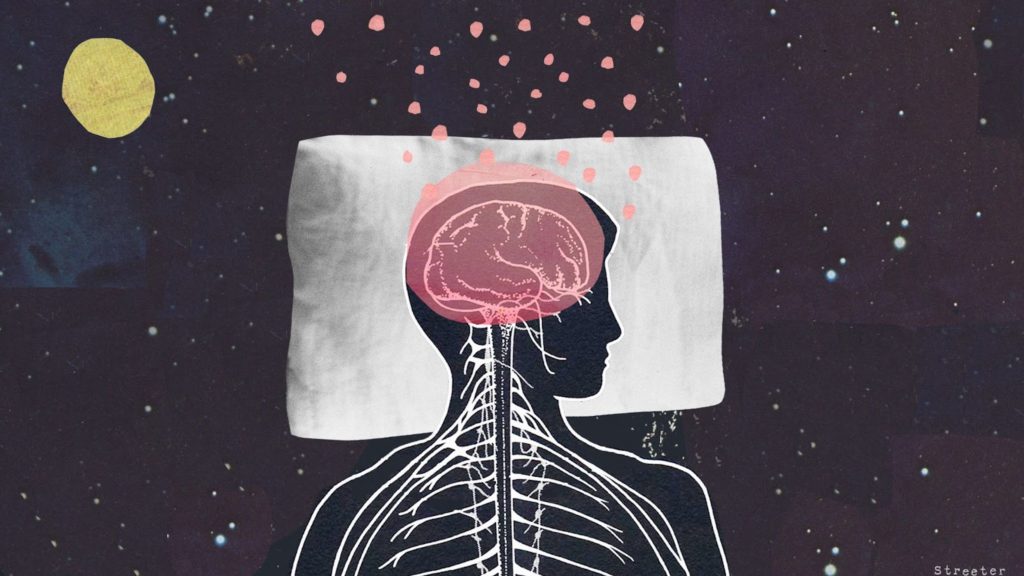Relieving Depression, One Nap at a Time

Courtesy of Katherine Streeter, National Public Radio
By Tess Rempel
The average person spends approximately twenty six years of their life sleeping, and 264 million people worldwide suffer from depression. Having struggled with depression myself, one technique that has changed my life and symptoms for the better is hypnopedia.
Hypnopedia is the concept of sleep learning, first studied in 1914 by German psychologist Rosa Heine. The very concept has been intensely debated since, as the field of neuroscience possesses a lack of evidence to conclusively determine the effectiveness of the practice, with some experts asserting that providing the sleeping brain with new information disrupts sleep patterns.
Despite hypnopedia being controversial and requiring further exploration, various studies have shown that there is a positive effect on implicit memory processes during sleep. Implicit memory is unconscious, making automatic behaviors (recalling song lyrics, brushing one’s teeth, riding a bike, etc.) possible. This lends itself to the ability for the brain to be conditioned while asleep, which results in participants being able to associate words with smells, learn words in the Mongolian language and reduce addictive behaviors.
People living with depression tend to experience a regular loop of negative thoughts and emotions, lending itself to diminished self esteem, emptiness and suicidal ideation. For many people, insomnia, in addition to general feelings of anxiety and isolation that can accompany nighttime, can worsen symptoms. Researchers have also found that cortisol is highest in the first hour of waking with people dealing with anxiety, making the minutes before you fall asleep and minutes after you wake up crucial to one’s mental wellbeing.
I have consistently engaged in hypnopedia for nearly a year. Every night, I search up ‘subconscious mind reprogramming sleep’ on YouTube, hit play with a timer for fifteen minutes, and drift off while mentally repeating the affirmations verbalized in the clip. Every once in a while, I’ll glance at the comment section, and it is always full of people praising the practice for the positive benefits it’s brought to their life.
“I wake up fully charged every morning…Thank you for making a life changing video.” one commenter wrote in the comment section of this video.
“I’m here because I want to overcome my long period of depression…Today my mindset changes,” another commenter wrote.
There are several counterarguments to this practice, and it is worth being skeptical about; for all I know, the positive changes in my mindset and changes in depressive symptoms could be chalked up to the placebo effect, or unrelated steps that I’ve taken while I’m awake. All I can be sure of is my own experience, which leads me to the conclusion that taking fifteen minutes to condition my brain before I sleep has had a significant impact on my mood, along with the millions of other people who echo the benefits.
Robert Sapolsky, Stanford Lecturer and author, described depression as “a neurochemical disorder requiring a strong environmental trigger, whose characteristic manifestation is an inability to appreciate sunsets.” It’s worth noting that depression varies from person to person, and the success of certain methods vary depending on the case at hand.
I hope that, whether it be medication like Lexapro or simply bearing the ebbs and flows, that sunsets are beautiful again for you.






